|
Rediscovering your Natural Poise:
An Introduction to the Alexander Technique for Actors The Alexander Technique is a century old mind-body discipline which has profound benefits for actors. It builds an actor’s ‘poise’: a state of physical, mental, and emotional readiness which allows the actor to function with better breath, ease, and spontaneity. In this hands-on introductory workshop, we will explore a process of how to let go of habitual tensions which interfere with the actor’s connection. We will learn some basic touch points that will help the actor to reconnect to their natural postural mechanisms and restorative wellness techniques you can take out the door with you and into your daily life. Sunday April 17th 2-3:30pm, Mind Art Core 4945 N. Damen Chicago, IL 60625 $25 Click Here To Register ( Select 'Workshops' and then Apiril 17th on the Calendar)
0 Comments
While travelling to visit my girlfriend's family in Mississippi, we listened to Amy Poehler's excellent audiobook 'Yes Please', about her career and life as a performer. One particular passage stuck out to me as useful: “Either way, we both agree that ambivalence is a key to success. I will say it again. Ambivalence is key. You have to care about your work but not the result. You have to care about how good you are and how good you feel, but not about how good people think you are or how good people think you look." Similarly, I recently listened to an episode of a Podcast, The Tim Ferriss show, in which he interviewed the Olympian Shaun White on his pre-run routine. How did he hype himself up to win all those medals? These are the words he would say to himself at the starting line: "Who Cares." He then went on to site the tennis player Andre Aggasi's autobiography as an influence, in which the champion stated that he got much better at tennis after starting to care less about it. This runs contrary to the movie narrative we've been given about success. At least in America, we are taught the best way to success is to focus on your goal and go after them with 100% effort--he who cares most wins. Impose your will on the situation and make it submit to you. So why do these three people cite as one of the keys to success being 'ambivalent' as to the outcome of their actions? I have a theory, and it has to do with the Alexandrian concept of endgaining. As discussed in a previous blog, endgaining is going for a result without regard for the process that gets you there. When we endgain, it engages all of our previously practiced habits towards our result. If your habits are pristine and in tune with the exact demands of the moment--good for you. However, it is rare that these automatically encoded procedures serve us entirely, and even rarer that they intersect with the complex set of variables that make up any interaction with the world. These habits cut down on our adaptability and ability to respond in the moment. This strategy also tends to coincide with over-efforting--the use of too much force or tension to try to achieve our goal. This works up to a certain point, but to reach truly high levels of performance, a balance is required--just the right tension. Overefforting is also often used to compensate for a lack of preparation or process--fake it until you make it mentality. When you instead allow yourself not to care too much about the outcome, it allows you focus on the means that will get you to your goal--the complex processes that when working together, result in your success. It should be noted that everyone cited above were not ambivalent about their preparation--on the contrary, they are almost obsessively dedicated craftspeople and creators. They are able to relax in the actual performance because they have mastered their means and have learned to trust them. To paraphrase the great A.T. teacher Pedro de Alcantara, 'Relaxation does not produce mastery; mastery produces relaxation'. It is also important that cultivating ambivalence will help you to enjoy your achievements more--as Poehler goes on to describe, caring too much about the outcome of a project can have an emotional backlash: "You will never climb Career Mountain and get to the top and shout, 'I made it!' You will rarely feel done or complete or even successful. Most people I know struggle with that complicated soup of feeling slighted on one hand and like a total fraud on the other. Our ego is a monster that loves to sit at the head of the table, and I have learned that my ego is just as rude and loud and hungry as everyone else's. It doesn't matter how much you get; you are left wanting more. Success is filled with MSG.” While if you keep the outcome in context, it allows you to enjoy the moment of doing the thing, being present to it, rather than hanging your self-esteem on what happens afterwards. It also helps you not crash if things don't pan out--and fuels you to get up and try again. So ambivalence helps you to enjoy the moment, focus on your process, succeed more, and bounce back better when you fail. Try working this practice into going after whatever your goal is today! And trust that if you concentrate on pulling back the bowstring well, the arrow you release will find its mark. And if not....meh? "A good stance and posture reflect a proper state of mind" "True victory is victory over oneself." Morihei Ueshiba, founder of Aikido "Be like water making its way through cracks. Do not be assertive, but adjust to the object, and you shall find a way around or through it. If nothing within you stays rigid, outward things will disclose themselves. Empty your mind, be formless. Shapeless, like water. If you put water into a cup, it becomes the cup. You put water into a bottle and it becomes the bottle. You put it in a teapot, it becomes the teapot. Now, water can flow or it can crash. Be water, my friend.” ― Bruce Lee "It's okay to lose to opponent. Must not lose to fear" --Mr. Miyagi (Fictional) Like many people, I fell in love with the martial arts through movies. Starting out with 'Star Wars' and swashbuckling movies, moving onto 'Crouching Tiger Hidden Dragon' and Hong Kong Cinema ('Once Upon a Time in China'; 'IP Man'); the beautiful swirls of movement, at once violent and fluid, turbulent but centered, fascinated me. Being a nerd sometimes picked on by jocks, it made me want to have that strength. I became a martial arts dabbler--I took a fencing class, some T'ai Chi, Shidokan Karate, stage combat classes through my theatre conservatory. One of my mentors at BU, the late playwright/actor/educator Jon Lipsky, was a black belt in Aikido and created an informal class to teach it to some of his students. Though all the classes that had come before had been good for picking up technique and challenging my toughness, this was to be my first taste of the martial arts mindset: Aikido, as taught by Jon, was not just a self-defense technique, but a way to process and improve your daily life, and was as much a mental discipline and philosophy as it was a physical system. Through Jon, I learned that you could conquer an opponent through non-aggression and standing in yourself much more easily than by taking an aggressive approach. It changed my entire concept of what strength is. Fast forward several years to Chicago and my second year of A.T. teacher training. I decided I wanted to re-explore my connection to the martial arts, and lived conveniently close to the Midwest Aikido center, one of the largest and well reputed dojos in the country. Partially to have a hobby to see me through the interminable Chicago winter, I enrolled. While learning there (and nursing bruises after sessions) , I had a remarkable opportunity to notice shared values and similarities between this art and the Alexander Technique. Below are a few simple intersections: 1. Posture is Everything One of the first things you learn in an Aikido class is the importance of your posture. It affects your fluidity of movement and your ability to stand in yourself while meeting the energy of another's attack. If your posture is poor in one way or another, you are off-balance and will be easily swayed when attacked. If you have good posture, you can take the attacker's energy and direct it around your center in a circular motion without having to contribute oppositional energy to the interaction(this can be done whether you move in space with footwork or not). This posture is not just physical but has to do with how you direct your Ki(energy). One of the benefits of learning the Alexander Technique is an improvement in poise, and I found using A.T. Directions(energetic postural thoughts) to channel my Ki to be very effective. Also in common is the concept that the head/neck/spine relationship is central to good movement--nowhere in the Aikido movement vocabulary is this relationship compromised. Howevewr the attacker's Use is compromised as a result of the techniques used on them--this is part of what gives you the power to throw or control them! 2. The Importance of Non-Doing and Adaptability Central to Aikido is the concept that you are not meeting the aggressor's attack with like energy(doing) but with yielding and re-direction(non-doing). In Aikido philosophy, to oppose the energy results in self harm--even if you are physically unscathed from the interaction, the aggressive damage to the other leaves a mark on you. Also, because you are not committing your energy but instead are responding to an attack, its makes you more adaptable than your opponent, which allows you ultimately to win. Part of this is the ability to not respond habitually to an attack but instead choose the means to counter the attack based on what your opponent presents in the moment--all of this is very much in line with the Alexandrian concept of Inhibition. 'Like water', as Bruce Lee would say it, you learn to flow and adapt to any scenario. 3. The Way to Improve is through Self Mastery(Fear is the Enemy) The purpose of Aikido is not necessarily to be able to win a bar fight (although Senseis have a curious way of using that as an example in demonstration scenarios). Rather, it is a way of learning to respond to any scenario with better command and ability, on or off the mat. More than anything else, its learning how to not give in to fear during an attack but instead respond by staying expanded and anchored in calm and how to use someone else's aggressive energy against itself. This counteraction of fear also shows up in the art of taking Ukemi (practicing the attacker role and learning how to roll with throws and locks without being injured). This gives you a feeling of confidence and capability in your life. The idea of learning how to respond to a challenging stimulus by expanding rather than contracting and ignoring the habitual pull of fear is central to the way I teach the Alexander Technique. Most habit is tied to and caused by fear. By breaking or challenging your habit, you challenge and can dispel that fear in your life. This is one of these disciplines greatest common gifts. Below this entry I have included a link to a YouTube clip of the 2013 Japanese team demonstrating at the World Combat Games. I hope you watch and enjoy. Arigato gozaimasu. Until next time. Workshop: The Power of Posture
An Introduction to the Alexander Technique Our posture affects everything we do. From exercise, to working on a computer, to our emotions and interactions with others, the way we 'hold ourselves' against and allow ourselves to 'be held' by gravity has profound effects on our wellness, our effectiveness, and our happiness. Bad posture has been linked to back and neck injury, stress, and depression. In this one hour workshop, learn some basics of how to reclaim your natural, easy lightness and poise from 1600-hour certified Alexander Technique Teacher Jeremy Cohn and see how it can change your life. Saturday March 5th, 10:45am-12:15pm. Spring Yoga and Fitness $25General Public/$20 Spring Members. 3940 N. Lincoln Avenue Register at: http://www.springyogachicago.com/workshops.html |
Thoughts on what is going on in the work and the world right now. Many posts to come. Archives
June 2021
Categories |
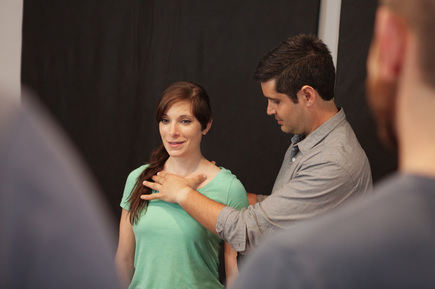
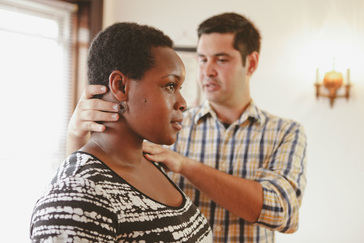
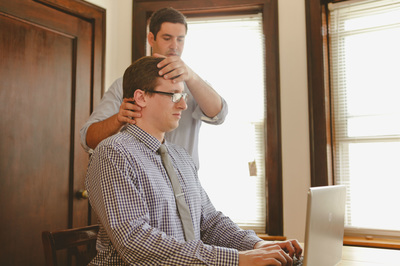
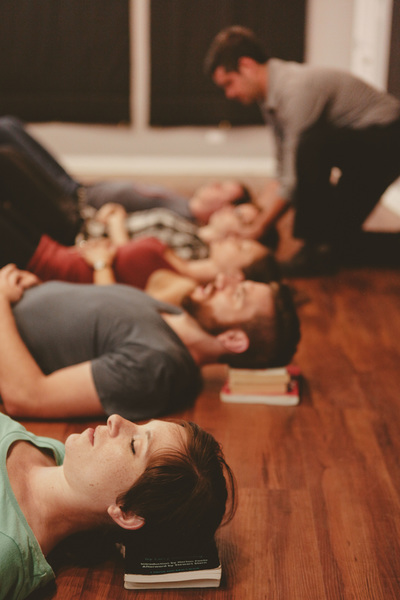
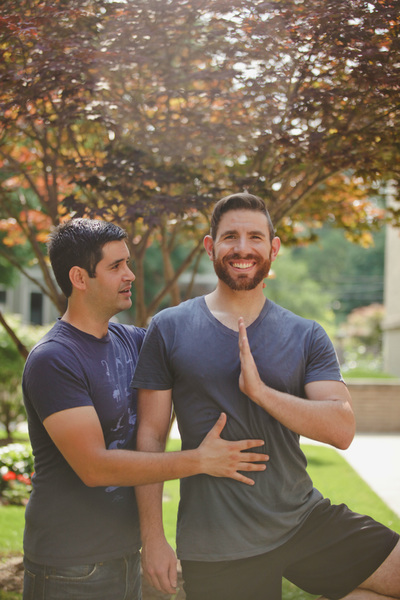
 RSS Feed
RSS Feed